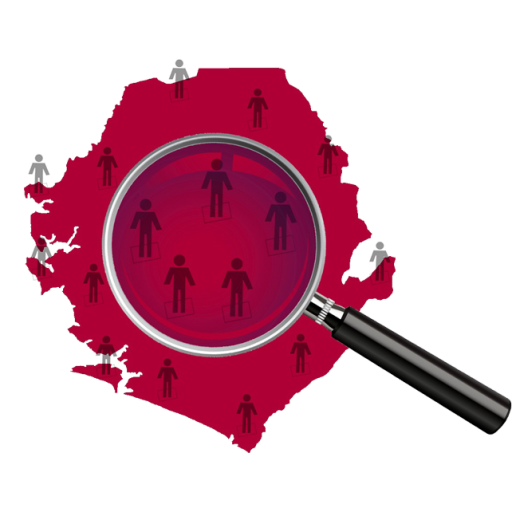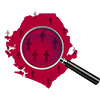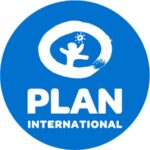Job Overview
-
Date PostedFebruary 8, 2024
-
Location
-
Expiration dateFebruary 22, 2024
-
Experience5 Years
-
GenderBoth
-
QualificationBachelor Degree
-
OrganizationGovernment of Ireland International
-
Required LanguagesEnglish
Job Description
TERMS OF REFERENCE FOR ANALYSIS OF THE LEGAL FRAMEWORK OF PUBLIC PROCUREMENT AND TO IDENTIFY CURRENT PROVISIONS AND CAPS IN GENDER RESPONSIVE PROCUREMENT.
The Budget Advocacy Network is organized around the three principles of the budget Process i.e. Participation, transparency. and Accountability. The purpose is to ensure greater inclusiveness in the process. increase access to information, and improve responsiveness geared towards achieving gender-sensitive and pro-poor budgets and programmes. ultimate aim of BAN is to have a social forum or social ads on issues of equity and social justice for the people Sierra leone
BAN consists of local and international organizations such as the National (NAG). Campaign tor Good Governance (CGG).
Network Movement for justice and Development (NMJD), Western Area Budget Education Advocacy network (WA BEAN),Action Aid International Sierra Leone (AAISL) Search for Common Grounds (SFCG) and Christian Aid (CA). As part of BAN’s work on gender. it received funding limn the Embassy of Ireland in Sierra Leone to start work on gender-responsive public procurement. for which one of the activities includes the analysis of public procurement activities in Sierra Leone on a gender perspective.
Gender-responsive procurement refers to a strategic approach in public procurement that aims to promote gender equity and women’s empowerment. It involves integrating gender considerations into the entire procurement process, from planning and designing the procurement strategy to evaluating bids and am .ding contracts and management. The goal is to ensure that procurement practices are inclusive and non-discriminatory and contribute to advancing gender equity. Traditional procurement processes often perpetuate gender inequalities by overlooking the specific needs and experiences of women. By adopting a gender responsive approach. governments and organizations can address these inequalities and create opportunities for women-owned businesses, promote fair competition, and enhance the overall effectiveness of public procurement.
The 2016 National Public Procurement Act (NPPA), Act No.1 of 2016, is conspicuously silent about gender-responsive procurement. However, the 1991 Constitution of Sierra Leone. (amended in 2001), under Article 27, provides for equal rights for men and women. Equally. Sierra Leone’s Gender Equality and Women’s Empowerment Policy (2021 ) contains a strategy around the formulation and subsequent enforcement of affirmative gender-responsive procurement which will provide the opportunity for men and women to equitably benefit from public procurements. Also. the 2022 GEWE Act makes a provision for women’s economic empowerment for which the budget can be used as a means to achieve economic empowerment using gender-responsive procurement as one of the tools to achieve that.
Analyzing the legal framework for gender-responsive public procurement is essential to identify the current provisions as well as the gaps in a bid to inform legal and policy reforms. The result of this analysis will generate the evidence needed that in form advocacy on legal reform and also help policymakers understand the current landscape to develop new or amend existing laws to promote gender responsive procurement more effectively.
To identify the possible gaps in the legal framework, BAN with support from the Embassy of Ireland Sierra Leone is recruiting a consultant to conduct this study to address the legal challenges deterring gender-responsive public procurement in Sierra Leone.
Overall Objective: review the current legal framework guiding public procurement in a bid to identify gaps and challenges deterring gender-responsive procurement in Sierra Leone to inform policy and legal reforms.
Objectives:
- To identify the current provisions in the legal framework as well as the gaps that deter gender-responsive procurement.
- Draw reference to international best practices and provide alternatives for improving the status quo in implementing gender-responsive procurement in Sierra Leone.
- Assess and identify the opportunities in the current procurement laws/policies/ regulations that would enhance gender-responsive procurement in Sierra Leone. •Assess and identify all the legal/policies passed by the government to advance gender-responsive public procurement and the barriers to implementing them.
Scope:
A review of the legal framework will help in understanding how laws and regulations can be .leveraged to support gender-responsive public procurement. It will look at the National Public Procurement Authority (NPPA) Act and its regulations, the Public Financial Management (PFM) Act of 2016, its regulations, and the Finance Acts. The analysis will provide clarity in terms of the existing provisions for gender-responsive procurement, gaps, and best practices.
The Study will Cover:
- Review of legal frame works guiding public procurement from a gender perspective
- Identity best practices that promote gender-responsive procurement in Sierra Leone
- Highlight the need for gender-responsive procurement processes
- Identify the gaps in the legal frame work and propose amendments
- Identify the opportunity within the current framework that promote gender responsive procurement
- Assess and identify all the legal/policies passed by the government to advance gender-responsive public procurement and the barriers to implementing them. •Identity clauses that may require amendments and propose legal clauses that may replace the identified ones.
- Any other
Methodology:
This study “ill employ the following methods:
- Desk review —review of the legal frameworks including international best t practices. will identify strengths, weaknesses, challenges, and opportunities
- Key Informant Interviews —key experts to provide their perspective on the legal framework regarding gender-responsive procurement.
| Activity | |
| Deadline-for submission of applications | February 22, 2024 |
| Signing of the contract | 29th February, 2024 |
| Submission of the inception report | March, 2024 |
| Submission of the draft report | 21st March, 2024 |
| Presentation of the draft report to the team | 26th March, 2024 |
| Presentation of the second draft report and policy brief | April, 2024 |
| Stakeholders validation Of the report | 10th, April) 2024 |
| Presentation of the final report and policy brief including PowerPoint presentation | 17th, April* 2024 |
Deliverables
Inception report
- Draft report of the study
- Facilitate validation meeting
- Detailed report with Policy Brief
Duration: 25 working days
Qualification:
- Applicants should have a degree in law from a recognized university.
- Experience in practicing law, particularly in areas related to procurement, government contracts, or public policy. This experience helps in understanding the intricacies of procurement laws.
- A deep understanding of gender issues, including gender equity, women’s rights, and the social and economic factors affecting gender disparities. This might come from formal education, research, or work experience in the field. Ability to analyze legal documents and understand how they impact different genders. This includes interpreting laws, regulations, and policies, and identifying potential gender biases or inequalities.
- Competence in conducting thorough legal and policy research, including comparative analysis of laws from a gender perspective.
- Strong writing and verbal communication skills are crucial for effectively presenting findings and recommendations.
- Experience in drafting, advising, or evaluating policy, particularly with a focus on gender inclusivity, can be a strong asset.
- Ability to work with a range of stakeholders, including government officials, NGOs, and advocacy groups concerned with gender equality and procurement policies
How to Apply?
Candidates should send in their Expression of interest and attach their CVs and Financial proposals for the 25 working days to info@ban-sl.org and copy the Coordinator, Abu Bakarr Kamara abkamara@ban-sl.org. The deadline for submission of applications will be 22nd, February 2024. Women are strongly encouraged to apply







